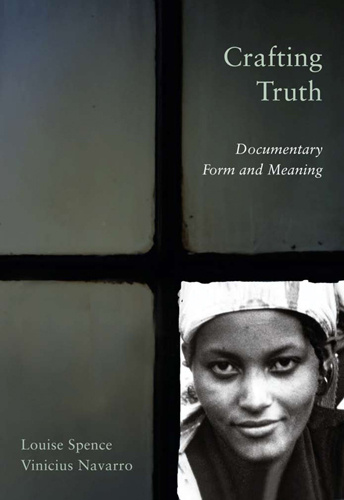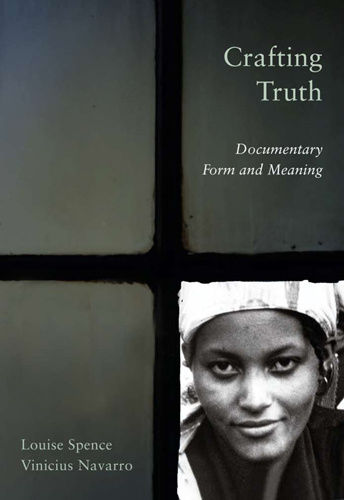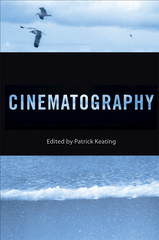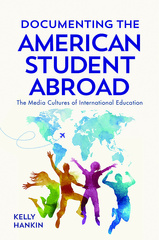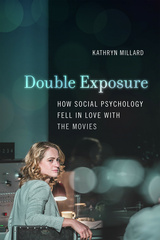Crafting Truth
Documentary Form and Meaning
By Louise Spence and Vinicius Navarro
Rutgers University Press
Documentaries such as Zana Briski and Ross Kauffman's Born into Brothels, Michael Moore's Fahrenheit 9/11, Jeffrey Blitz's Spellbound, along with March of the Penguins and An Inconvenient Truth have achieved critical as well as popular success. Although nonfiction film may have captured imaginations, many viewers enter and leave theaters with a nanve concept of "truth" and "reality"-for them, documentaries are information sources. But is truth or reality readily available, easily acquired, or undisputed? Or do documentaries convey illusions of truth and reality? What aesthetic means are used to build these illusions?
A documentary's sounds and images are always the product of selection and choice, and often underscore points the filmmaker wishes to make. Crafting Truth illuminates the ways these films tell their stories; how they use the camera, editing, sound, and performance; what rhetorical devices they employ; and what the theoretical, practical, and ethical implications of these choices are. Complex documentary concepts are presented through easily accessible language, images, and a discussion of a wide range of films and videos to encourage new ways of thinking about and seeing nonfiction film.
A documentary's sounds and images are always the product of selection and choice, and often underscore points the filmmaker wishes to make. Crafting Truth illuminates the ways these films tell their stories; how they use the camera, editing, sound, and performance; what rhetorical devices they employ; and what the theoretical, practical, and ethical implications of these choices are. Complex documentary concepts are presented through easily accessible language, images, and a discussion of a wide range of films and videos to encourage new ways of thinking about and seeing nonfiction film.
Spence and Navarro create a beautiful, accessible synthesis of the ideas underpinning documentary thinking, the key scholars addressing these ideas, and a diverse filmography representing those texts. It sets the foundation for understanding the form as it has developed so far and provides a starting point for understanding the form as it will evolve in the future.
Highly recommended. Perhaps mandatory for students of film, mass communication, and journalism.
Crafting Truth delivers an intelligent and inspiring introduction to documentary studies through an original framework that powerfully attends to the complex politics, aesthetics, ideas, and forms at the heart of the genre.
Crafting Truth introduces readers to some of the basic questions guiding contemporary discussions of the documentary. Authors Louise Spence and Vinicius Navarro structure their book around thoughtful considerations of general concepts like authenticity, evidence, and responsibility; structural organization of rhetoric and argument; and formal techniques like editing, camerawork, and sound in order to ask: how do documentaries proclaim themselves authentic?
Crafting Truth addresses all the main issues involved in studying the documentary, cleverly illustrated by recent examples while not forgetting necessary consideration of the canon—a very valuable account.
A novel and illuminating introduction to key concepts in documentary. The distinctive cast to the book makes it an extremely welcome contribution to the field.
Spence and Navarro create a beautiful, accessible synthesis of the ideas underpinning documentary thinking, the key scholars addressing these ideas, and a diverse filmography representing those texts. It sets the foundation for understanding the form as it has developed so far and provides a starting point for understanding the form as it will evolve in the future.
Highly recommended. Perhaps mandatory for students of film, mass communication, and journalism.
Crafting Truth delivers an intelligent and inspiring introduction to documentary studies through an original framework that powerfully attends to the complex politics, aesthetics, ideas, and forms at the heart of the genre.
Crafting Truth addresses all the main issues involved in studying the documentary, cleverly illustrated by recent examples while not forgetting necessary consideration of the canon—a very valuable account.
Crafting Truth introduces readers to some of the basic questions guiding contemporary discussions of the documentary. Authors Louise Spence and Vinicius Navarro structure their book around thoughtful considerations of general concepts like authenticity, evidence, and responsibility; structural organization of rhetoric and argument; and formal techniques like editing, camerawork, and sound in order to ask: how do documentaries proclaim themselves authentic?
A novel and illuminating introduction to key concepts in documentary. The distinctive cast to the book makes it an extremely welcome contribution to the field.
LOUISE SPENCE is a professor of cinema studies at Kadir Has University in Istanbul and the coauthor of the award-winning Writing Himself into History: Oscar Micheaux, His Silent Films, and His Audiences (Rutgers University Press).
VINICIUS NAVARRO is an assistant professor of film studies at the Georgia Institute of Technology.
VINICIUS NAVARRO is an assistant professor of film studies at the Georgia Institute of Technology.
Acknowledgements
Introduction
PART ONE. GENERAL CONCEPTS
1. Authenticity
2. Evidence
3. Authority
4. Responsibility
PART TWO. STRUCTURAL ORGANIZATION
5. Argument
6. Dramatic Stories, Poetic and Essay Documentaries
PART THREE. FORMAL TECHNIQUES
7. Editing
8. Camerawork
9. The Profilmic
10. Sounds (coauthored with Carl Lewis)
Index
Introduction
PART ONE. GENERAL CONCEPTS
1. Authenticity
2. Evidence
3. Authority
4. Responsibility
PART TWO. STRUCTURAL ORGANIZATION
5. Argument
6. Dramatic Stories, Poetic and Essay Documentaries
PART THREE. FORMAL TECHNIQUES
7. Editing
8. Camerawork
9. The Profilmic
10. Sounds (coauthored with Carl Lewis)
Index

